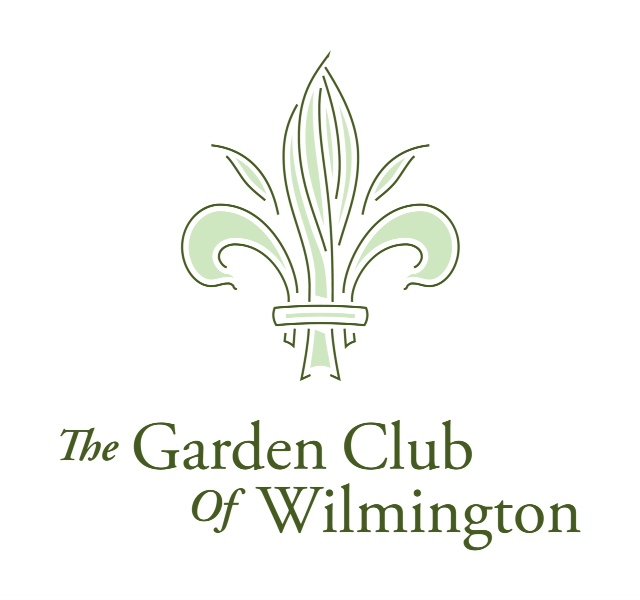Pennsylvania Horticultural Society Announces New Gold Medal Plant Winners
Exceptional Plants for Home Gardens in the Mid-Atlantic Region
The Pennsylvania Horticultural Society (PHS) has shared its list of 2024 Gold Medal Plant winners, now available to the public through most garden retailers. The Gold Medal Plant Program was created by PHS in 1979 to celebrate and showcase beautiful, easy-to-grow plant species that are ideal for home gardening. Each year, a committee of horticulture experts convenes to assess trees, shrubs, and perennials on various criteria including their suitability for home gardens in the mid-Atlantic region, their ease of cultivation, ready commercial availability, wildlife value, weather tolerance, and pest resistance.
Since the program’s inception, PHS has named over 150 Gold Medal Plants. Including this year’s winners, all plants are indicated for their hardiness in zones 4 to 8 on the USDA’s hardiness zone map, making them ideal choices for the Mid-Atlantic region.
“The PHS Gold Medal Plant program provides amateur and professional gardeners alike with unique plant species suggestions to help refresh their gardens with easy-to-grow, hardy perennials, trees, shrubs, and edibles, many of which also bring ecological function to the garden and benefit local wildlife.” said Andrew Bunting, PHS’s Vice President of Horticulture. “This year’s Gold Medal Plant winners provide a wide array of plant recommendations that are well-suited to many different types of garden spaces, making it simple to find a plant that is right for your garden’s conditions.”
To learn more about this year’s Gold Medal Plants, or to view previous year’s winners in PHS’s online database, please visit: phsonline.org/for-gardeners/gold-medal-plants.
2024 PHS Gold Medal Plants
Asparagus officinalis ‘Millennium’
Edible
One of the highest yielding asparagus on the market, Asparagus officinalis ‘Millennium’ is a stem vegetable that produces uniform, tight tipped, tender spears with excellent flavor. It is hardy and easy to grow. It prefers full sun and loose, organically rich, evenly moist, sandy, well-drained soil. In addition to the edible shoots, asparagus produces attractive ferny foliage that turns yellow in the fall before going dormant in winter. Asparagus officinalis ‘Millennium’ grows up to 3-5 ft. tall and 1-3 ft. wide. It is disease, deer, and drought resistant and grows in hardiness zones 3-10.
Illicium ‘Woodland Ruby’
Shrub
‘Woodland Ruby’, commonly known as Florida anise tree, has deep reddish strap-like flowers creating an extended period of bloom beginning in early summer and lasting through fall. It requires protection from winter winds and is happiest in some shade but will tolerate more sun given enough moisture. It grows well in numerous settings and especially well in city gardens, where space and light are issues. It is deer resistant, attracts pollinators, and is fragrant. In its mature height of 6-7 ft., it is a good choice for a screen or backdrop. It is hardy in zones 6-9.
Magnolia ‘Genie’
Tree
This is a perfect choice for small space gardens. It has an incredible spring flowering display of red to purple scented flowers that are eye-catching; long-lived and easy to care for with repeat blooms through the growing season. Its narrow columnar form fits anywhere and can be grown in an extra-large container. Plant Magnolia ‘Genie’ in sun to part shade in slightly acidic, moist, fertile, well-drained soils. Amend with compost when planting and keep well-watered. It reaches only 10-13 ft. Tall and 5 ft. wide. It is hardy in zones 5-8.
Cephalanthus occidentalis Sugar Shack®
Shrub
This selection of buttonbush is a more compact version of native Cephalanthus and good for small space gardens. Its fragrant, white, globe-like flowers are prominent in the summer and followed by burgundy foliage in the fall and red fruit in the winter. It is easily grown in moist, humus soils in full sun to part shade. Cephalanthus attracts a variety of pollinators and can grow to 5 ft. tall and wide at maturity. It is hardy in zones 4-8.
Iris tectorum
Perennial
The common name for Iris tectorum is Japanese roof iris. It grows well in organically rich, medium moist, well-drained soil in full sun to part shade. It benefits from the shelter of a wall with western or southern exposure and winter mulch. It has beautiful showy flowers in shades of lavender blue, blush violet, and blue lilac. Its foliage is arranged in fans of narrow, lance-shaped, ribbed, glossy, upright leaves. It can spread rapidly in the garden. It is deer resistant and grows 12-18 inches tall in maturity. It is hardy in zones
6-9.
Tiarella cordifolia ‘Brandywine’
Perennial
‘Brandywine’ foamflower is an early season long blooming, native perennial introduced by Sinclair Adams at Dunvegan Nursery in West Chester, PA. It thrives in part to full shade and works well in both dry and moist soils. The leaves have red hues and turn bronze in the fall. Its lovely spiked white flowers sit above the ground-hugging foliage and stay in bloom for 2 months. It attracts specialist bee species and other pollinators, and it is great for small space gardens, containers, and window boxes. It combines well with other shade-loving plants. It is deer resistant and grows to be 8-18 in. tall when in flower. It is hardy in zones 4-8.
ABOUT PENNSYLVANIA HORTICULTURAL SOCIETY
The Pennsylvania Horticultural Society (PHS), an internationally recognized nonprofit organization founded in 1827, uses horticulture to advance the health and well-being of the Greater Philadelphia region. PHS programs create healthier living environments, increase access to fresh food, expand access to jobs and economic opportunity, and strengthen deeper social connections between people. PHS’s work spans 250 neighborhoods; an expansive network of public gardens and landscapes; year-round learning experiences; and the nation’s signature gardening event, the Philadelphia Flower Show. PHS provides everyone with opportunities to garden for the greater good as a participant, member, donor, or volunteer. For information and to support this impactful work, please visit PHSonline.org.






